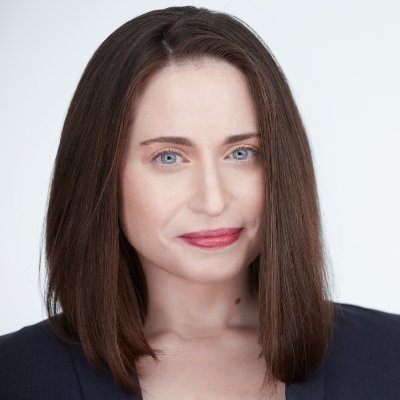Columbia College | Columbia University in the City of New York
College Choices Shaped Julia Rose Kraut ’03’s Life

What were you like when you arrived at Columbia?
I turned to one of my dearest friends, Robyn Schwartz ’03, to help answer this question. We met when we arrived at the College and started writing for Spectator. According to Robyn, I am more or less the same, including my penchant for drinking very strong coffee. I also brought a passion for studying history and constitutional law with me to Columbia, which deepened over the course of my four years there. What I remember most about those first few weeks was how excited I was to meet new people, to learn about subjects I had never studied before and to take advantage of all that the College and New York City had to offer. There were no worries about the future or choosing a major. I was enjoying living in the moment, which seemed to hold endless possibilities for new experiences and opportunities for exploration.
What do you remember about your first-year living situation?
I lived in Carman with students from all over the world. Two of my closest friends during my first year lived down the hall; one was from India and the other was from Singapore. Carman was notorious for its slow, crowded elevators; what I remember most about my first-year living situation was constantly climbing up and rushing down stairs and trying not to bump into anyone in the stairwell. I didn’t spend much time in my room, it served mainly as a place to sleep. My memories of that year were of hanging out with friends at Butler and various spots on campus, or nearby at the small Spec office, or at Nussbaum & Wu, The Hungarian Pastry Shop, Ollie’s, The Heights, Le Monde or The West End. We also met up at museums and art galleries, headed downtown to clubs to dance or listen to jazz, took long walks from Columbia to Greenwich Village and watched films or live performances at Lincoln Center.
What Core class or experience do you most remember, and why?
I loved the Core, while others I knew found it too rigid and constraining. More than two decades later, I still find myself drawing on what I learned in Art Hum and Music Hum and reflecting on the texts we read in Lit Hum and CC. I also appreciated the small class sizes and that we were all reading the same books, often at the same time. It was something we shared and a set of common references we will always carry with us. Perhaps my fondest memories are of CC: I enjoyed the assigned reading, especially John Stuart Mill’s On Liberty, but what made CC so special were my classmates. Our class quickly developed a chemistry and collegiality that led to lively discussions inside and outside the classroom. I remember hosting a study session where everyone arrived with snacks and notes, and we spent two hours talking about philosophy, asking and answering each other’s questions, and laughing together. By the end of the year, we had forged a close-knit bond through camaraderie rather than competition.
Did you have a favorite spot on campus, and what did you like about it?
What I remember most were how my favorite spots on campus changed with the seasons. In autumn, I loved walking across the campus when the air was crisp and cool and my shoes would brush against fallen leaves. On winter evenings, I used to cross campus along College Walk, with the trees strung with lights and a soft glow emanating from Butler, which was teeming with students. And, in spring, there was nothing better than to sit on Low Steps on a bright, sunny day, chatting with friends, watching students play Frisbee on the lawn, greeting professors as they walked by or listening to music from a concert on Low Plaza.
What, if anything, about your College experience would you do over?
While I have always wished that I had studied abroad during my junior year, I do not regret remaining in New York City. The 9-11 attacks took place during the first few weeks of that academic year; I later answered research scientist Mary Marshall Clark’s call for volunteers to conduct interviews for “The September 11, 2001, Oral History Narrative and Memory Project.” I also helped to reestablish the Columbia chapter of the ACLU and took over as its president, focused on raising consciousness about civil rights and liberties violations committed in the name of national security, and the importance of protecting dissent and the right to protest during the War on Terror.
I also felt fortunate to be able to take one of Professor Eric Foner ’63, GSAS’69’s signature courses, “The American Radical Tradition,” as well as a course on 20th-century U.S. history with Professor Alan Brinkley. Both classes revealed how studying the past was essential to understanding the present. I began a research project on the suppression of anarchism in the wake of the 1901 assassination of President William McKinley; through my research, I learned about the first ideological exclusion law in the United States, authorizing the exclusion of anarchists, as well as the legal precedent set from the constitutional challenge to that law. I continued to pursue my interest in this unique intersection of immigration and the First Amendment during law school and graduate school. I can trace the publication of my book back to my time at the College and my choice to stay in the city rather than study abroad. That choice not only shaped my College experience, but also shaped the rest of my life.

